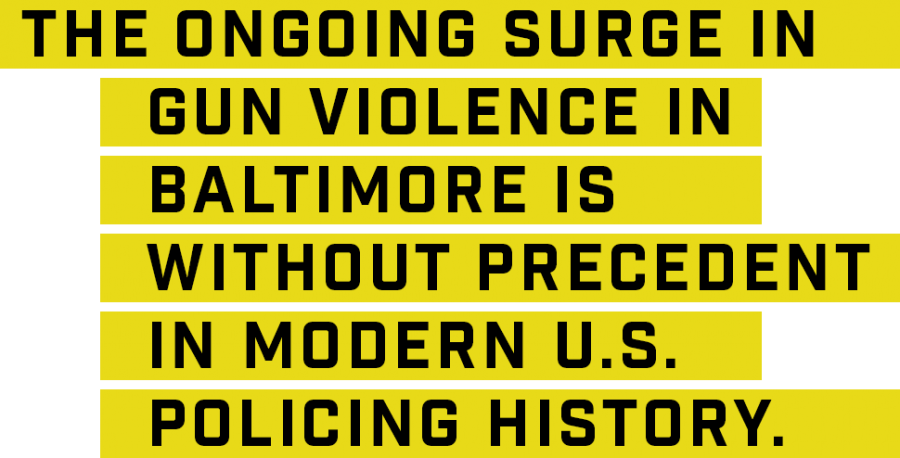On April 30, Loyola Rising, a student-led movement dedicated to acting against American racial injustice, held a day of remembrance in the Center for Intercultural Engagement for the lives lost to gun violence and police brutality in America, and more specifically, in Baltimore.
Standing in a circle in the center of the room, each participant was equipped with a candle. Nia Kuttamperoor ‘20, an active member of Loyola Rising, opened this reflective time by calling recognition to the systemic racism present at Loyola, in Baltimore, and in the United States. She also brought attention to those who have been affected by the violence and oppression that exists in society today.
“Our goal is to interrupt patterns of complacency that we all feel subject to in our lives at Loyola University,” said Kuttamperoor. “By taking the time to reflect and ponder the individual lives who (sic) were taken away, we are looking toward combating the normalization of death at the hands of police brutality and gun violence and taking the necessary steps toward restoring the sanctity of human life.”
Ikechukwu Sharpe ‘19, the creator of Loyola Rising’s 2018 documentary, created a new film for the occasion, highlighting the coverage of police brutality by the mainstream media, including a number of news clips that showcased how often these episodes of violence occur.
“Ikechukwu is highlighting the frequency and proximity of injustice that has become more visible due to our ability to capture it on our phones,” said Frances Almodovar ‘21, a member of Loyola Rising.
Almodovar also highlighted Sharpe’s inclusion of a scene from Spike Lee’s movie, “School Daze,” in which the main character urged his community to wake up to the injustices present around them. This, she noted, is a connection to the movement’s initiative to address the climate of complacency at Loyola when it comes to race relations in Baltimore.
“The majority of students on campus have the privilege of choosing when to act into discussions of racial injustice throughout our country. As students at a Jesuit university, [we] have a moral obligation to not only awaken ourselves from the dream-like state of mind that privilege allows us to see the world [in] but to bear witness to humanity and answer the call to act in the name of justice,” said Kuttamperoor.
Throughout this time of reflection, Loyola Rising placed great emphasis on their responsibility to connect with other organizations and schools with the same mission. In making Loyola Rising a sustainable movement that is connected to those that are similar, student leaders are hopeful that they can maintain their message enough to be passed down for class years to come.
This day of remembrance was concluded with readings of the names of those killed in the hands of gun violence and police brutality since January 2019 in Baltimore and a prayer for the deceased. The group leaders emphasized that although they are not all connected through a common faith, they are connected through their common goal of addressing and eliminating racial injustice at Loyola, in Baltimore, and beyond.
Featured Image: Courtesy of Baltimore Magazine

















































































































Anonymous • Aug 24, 2019 at 7:47 pm
0.5